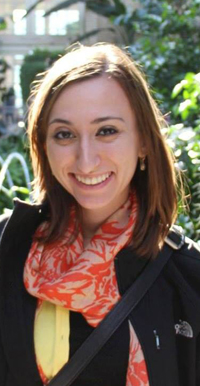Developed by Lauren Guggenheim in coordination with Janie Velencia.
This is a post in a series about student involvement in research projects in the Center for Political Studies (CPS). Here, we profile Janie Velencia, whose work on the Constituency-Level Elections Archive (CLEA) helped influence her career path in political research.
 As an undergraduate student at the University of Michigan, Xhensila (Janie) Valencia was interested in participating in the University’s Undergraduate Student Research Opportunity Program (UROP). Through the program, she sought a research project that would allow her to build work experience. “I interviewed for several interesting projects, but CLEA fit best with my majors in political science and international studies and sounded the most promising in terms translating into work skills,” she says. She could not have guessed at the time how helpful CLEA would be in that regard.
As an undergraduate student at the University of Michigan, Xhensila (Janie) Valencia was interested in participating in the University’s Undergraduate Student Research Opportunity Program (UROP). Through the program, she sought a research project that would allow her to build work experience. “I interviewed for several interesting projects, but CLEA fit best with my majors in political science and international studies and sounded the most promising in terms translating into work skills,” she says. She could not have guessed at the time how helpful CLEA would be in that regard.
CLEA is a repository of detailed results from lower house elections from around the world. CLEA provides opportunities for students to be involved at all stages of the data collection process, providing valuable experience and training for them. Working on research projects can be an excellent way for students to explore whether they would like to further their career in research and academia. Many of CLEA’s alumni have gone on to attend graduate school and obtain research-oriented jobs.
Janie remembers her most interesting work with CLEA data: “I’m originally from Albania and immigrated to Michigan with my family at the age of 5, so when I saw that there was a data file on Albania, I immediately volunteered for it” she says. Because she is fluent in Albanian, and is familiar with its political history, she found that file interesting and easier to work with than some of the others, specifically because she could recognize the names of parties in both English and Albanian without having to overcome some of the usual language barriers that sometimes arise when working with the data.
She also found that focusing on the data from specific countries allowed her to learn interesting things about the political history and mood of a country. In particular, Poland stood out to her because they went from having few parties after the fall of communism to many parties, including the Beer Lover’s Party, whose platform was to promote cultural beer drinking in the country.
Janie credits her work with CLEA for helping her land an internship in the U.S. Senate, and later a job at a company called Congressional Quarterly / Roll Call, a subsidiary of the Economist Group that provides congressional research and reporting to subscribers. She was told that it was specifically her work with CLEA that made her uniquely qualified for the researcher position right out of college. She had been working there for about a year and a half when an opportunity arose for a new position that would allow her not only to work with data, but also to broaden her experiences to interpret the data and write about her results.
Currently, she works at Huffington Post as an editor for a team called HuffPost Pollster where she participates in tracking and aggregating political polls in the U.S., including all the races leading to the 2016 election. She writes articles based on poll results and contributes to a weekly polling newsletter. She believes her CLEA training also helped her attain this job.
Janie sees many parallels between her current position and her work with CLEA. “I think it’s vital to provide free accessible information about elections and public opinion for both research purposes and the public good.” She has allowed the notion to carry her into her current job. “Being able to contribute in a way that makes information accessible to the public, is what I do now, and it is also one of the great things about CLEA,” she added. Being cited by news outlets for her research is both exciting for her and satisfying because it means that the public is directly benefiting from data she helped collect and analyze.

